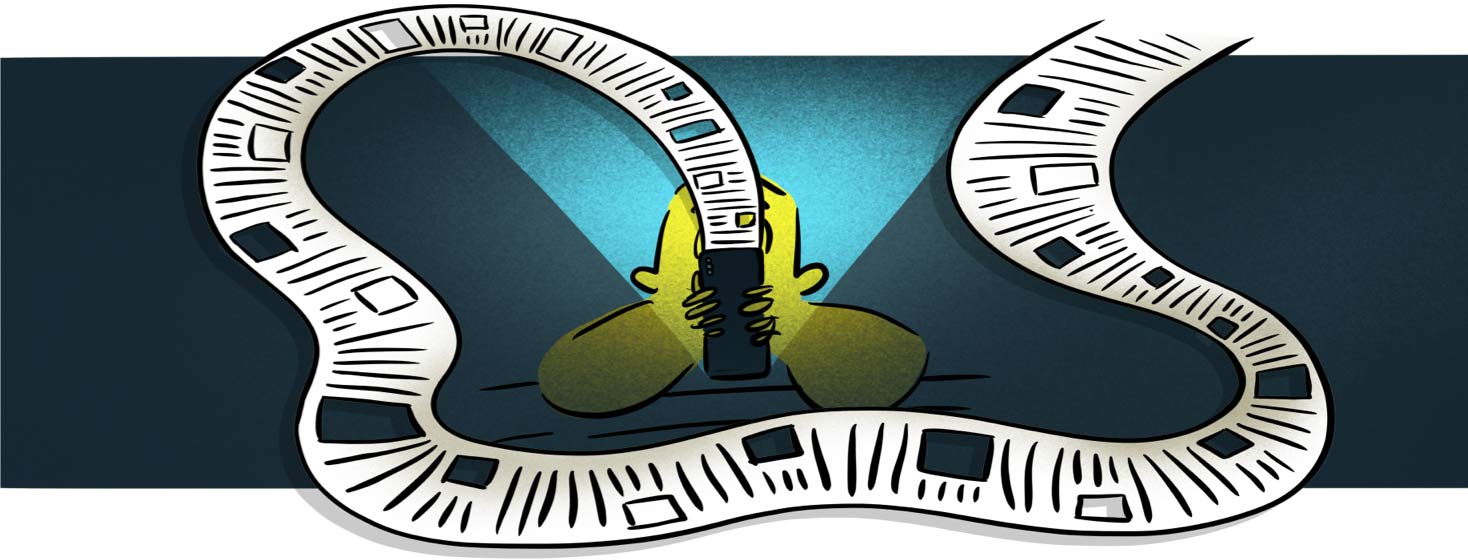Are You Guilty of Doomscrolling About Lupus?
I recently had a flashback from the first year after my lupus diagnosis: I was lying on the couch with high pain levels and I had read an extensive list of things that could go wrong with lupus. My anxiety levels were high and I was voicing my fears to my husband through a barrage of questions.
"Do you think lupus will attack my heart? I already have high blood pressure. What about my kidneys? Hypothetically, if it attacks my kidneys, would you consider being a donor? What about this new medicine? It could affect my eyes! What if I develop lupus myelitis? I know it’s rare, but how would we manage it? I could lose so much."
On and on it went. I really needed to put down the reading material and do something positive.
This or That
Do you find yourself "doomscrolling" online about lupus?
How did I break the doom cycle?
As time passed, I realized nothing was devastatingly wrong with me aside from living in pain and fear. I was so afraid that lupus was doing something nefarious in my body and we wouldn’t catch it in time, even though I knew these nightmarish situations were generally uncommon. I didn’t have any legitimate signs that my disease was severe.
My belief that knowledge is power was working against me at that point. I was reading about rare lupus manifestations, people’s worst flares, case studies that fascinated doctors (but terrified patients), and I was completely wrapped up in reading those heartbreaking stories. I even met a woman in our local support group that had 3 heart attacks.
It seemed like only a matter of time before things hit the fan in my own life.
Shifting my mindset
After some time passed, I realized that it just wasn’t realistic to always be afraid of my disease. I couldn’t live a full life with that mindset. I needed to refocus to be more productive and not so worried. This became even more important to me when I became pregnant with our first child - I knew they needed a mother who was living in the present and not letting fear take over.
I decided that we were going to focus on the facts of my health and not worry about the unknown. It took a while to make this shift in my mindset and I still occasionally find myself doomscrolling about something highly unlikely to happen.
What can we do about health anxiety?
If you’re constantly worried about your disease, there’s a lot you can do to take back some of your peace of mind. You can go to therapy, find a support group, make sure your doctor is thorough in their treatment, pick up a hobby that helps release stress, or look for positive older role models.
I experienced the most benefit by changing the sources of my information. I moved away from internet forums where many people were posting cries for help and looked for fact-based information that had gone through a medical check. I found that sources such as the Lupus Encyclopedia helped provide a balance of information. There may be negative outcomes, but they were put into perspective and often included action plans for how difficult situations could be managed.
I changed who I was following on social media. Although I respect sharing our worst days, I moved away from people who were overly focused on the negative. I looked for people who were empowered and informed about their medical condition – those who balanced bad days with proactive measures and confidence in their medical team.
The power of choosing gratitude
By succumbing to stress and worry, I was only elevating the stress in my body. Once I started practicing gratitude, affirmations, and prayer (or meditation) I saw a huge change in my attitude and resilience.
It’s not easy – just last week during a flare I needed another autoimmune friend to remind me to focus on what I can do while my body rests, not what I can’t do. It's powerful to flip a negative outlook into a positive one.
At first, practicing gratitude felt like an overused, trendy buzz phrase to me and I dismissed it entirely. For many years I wasn’t mentally or physically in a place where it would have been easy for me to express gratitude.
It’s only been in the past year that I’ve wanted to try practicing gratitude, partially because I found myself in a place where I felt the stress would eat me alive if I didn’t.
Thankfully the gratitude and affirmations have brought a huge change to my life and empowered me to take even better care of my body, my mental health, and my family. I hope my story of going from a place of doomscrolling to embracing positivity can be helpful if you’re struggling with something similar. There’s a reason doctors don’t like patients to over-google their symptoms or diagnoses – it’s easy to end up in a dark place.

Join the conversation